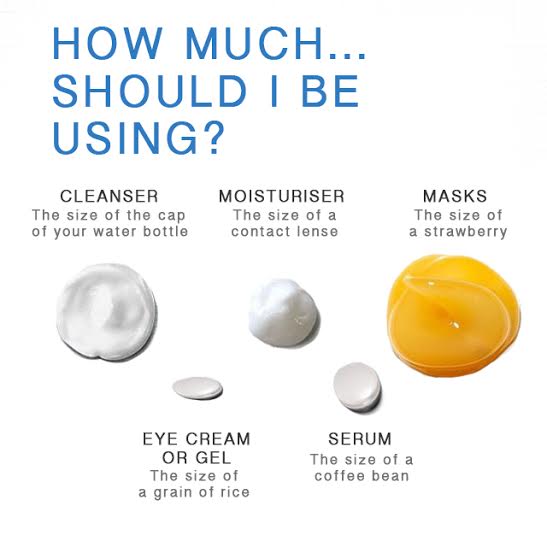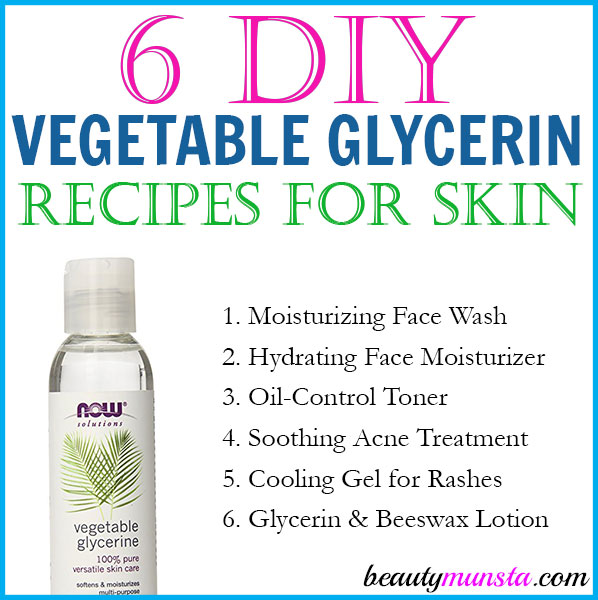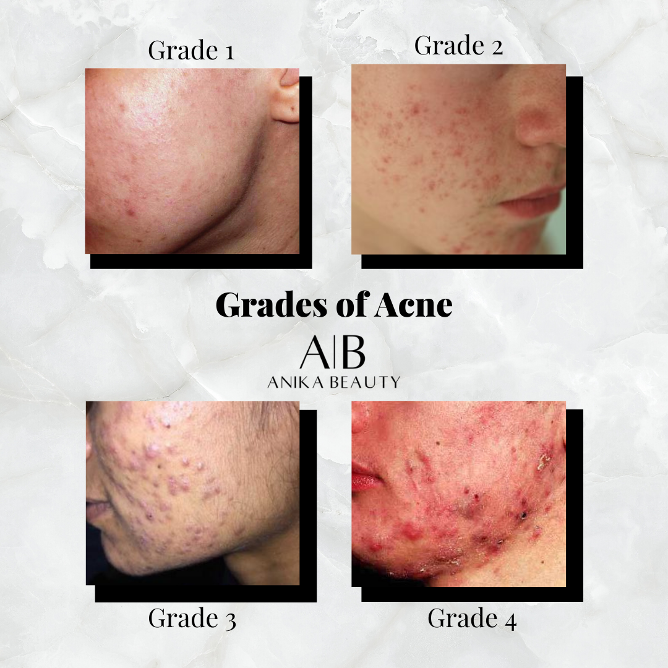If you've never used a facial oil before, we recommend starting with a daytime oil, like Daily Reviving Concentrate. This antioxidant-rich oil stars sunflower oil, tamanu oil, and ginger root essential oil to help revitalize the skin. The lightweight formula also helps protect the skin from free radicals and damaging environmental stressors.
Use it in your daily skincare routine for radiant, healthy-looking skin. All three experts agree that moisturizers can be swapped out for face oils. Says Dr. Marmur, "Oils are occlusive, which means they trap moisture on the skin. As for face oils, they're pressed from plants, derived from nuts, seeds, fruits and other natural ingredients which results in them containing essential fatty acids, vitamins, and nutrients to support healthy nourishment.
These natural oils are also able to work to repair and protect the skin barrier and provide lasting nourishment whenever your skin is feeling dry. So while moisturizers provide instant hydration, face oils provide long-lasting moisture with a vitamin-enriched bonus. So oils also work by helping the skin barrier seal everything in, ensuring none of your skin's water content gets lost. When used correctly, facial oils can be great for your skin.
However, it's important to remember that oil and water do not mix. When you apply too much oil to your skin, it can actually stop it from soaking up the moisture in other products. Healthy and moisturized skin requires a balance of many factors, and while face oil has many benefits, it should be used in moderation.
Facial oils work well to smooth and soothe skin while keeping essential hydration locked in. However, they do not replace the other necessary ingredients required for a healthy moisture barrier. So while we don't recommend replacing your moisturizer with a face oil, we do suggest using one to supplement an already established skincare routine.
The natural moisturizing barrier protects your skin from external threats such as dust, dirt, and bacteria. However, this barrier weakens over time due to dehydration, extreme sun exposure, improper diet, and aging. That is why you need to include facial moisturizing products in your skincare routines, such as serums, facial oils, and moisturizers. If you're on the hunt for an oil to add into your routine, Levin recommends squalene, marula, or jojoba oil, since they can help with redness and won't clog pores, given the molecule size. These natural oils will not only condition skin, but they're also packed with essential vitamins.
Gohara mentions mineral oil-based products like Vaseline are also a great choice for most skin types. Oils to avoid in skincare are argan and coconut oil, since the molecule size is larger and therefore may contribute to acne . Oils give your skin an instant softness and smoothness that can be kind of addictive .
But more than that, they're often packed with essential nutrients, fatty acids, and antioxidants. Plus, adds Chan, they form a protective layer for your skin cells. While they're not the be-all and end-all solution to skin issues, they do their fair share by repairing and protecting your skin barrier, which helps your skin absorb other skin care products. If you're not seeing the dreamy skin you imagined you would from serums and moisturizers alone, an oil might be able to make that happen. Look for oils rich in essential fatty acids, vitamins A and C, lycopene, beta-carotene and antioxidants, suggests O'Brien.
"If face oils are new for you and you are unsure where to start or how your skin will react, I would suggest a single-ingredient natural oil like rosehip, seabuckthorn and black seed," she says. She specifically sings the praises of rosehip oil as it's high in linoleic acid, very hydrating and absorbs quickly, so it works well for all skin types. And when your favorite facial moisturizer fails to deliver that extra hydration, sneaking in an extra layer of a moisture proves to be a necessary step. While adding a facial oil into your skincare regiment may seem like an intimidating addition, the natural absorbing and enriching ingredients may be just what your skin needs.
Take it from makeup artist and co-founder of Votary skincare, Arabella Preston, who famously helped guide Kate Middleton on achieving her own wedding makeup and is a strong advocate for natural facial oils. From the proper application techniques to the benefits of oil cleansing, here Preston shares why facial oils should be your new vanity go-to. Yes, Rosehip Oil can be used on the face as part of your daily skincare routine. The colour of Rosehip Oil can vary from light yellow to golden amber but will not stain skin, clothes or linen. There are 2 ways to use it – apply two to three drops, warm in the palm of your hands and apply to your face or add just one or two drops of it to your normal moisturiser. Allow 5 minutes before applying a moisturiser or sunscreen over it.
Rosehip Oil will leave your skin feeling softer, firmer and glowing. It has amazing anti-ageing benefits and helps to reduce fine line and wrinkles. Extracted from the seeds of wild rose bushes, rose hip seed oil has seen a surge in popularity and is increasingly found in facial skincare products that tout moisturizing, anti-aging benefits. For these, Zeichner recommends applying before you moisturize but after—or even instead of—your serum.
The other way you can use face oils is as the last step in your routine at night or the second-to-last before sunscreen in the morning. That way, they're acting as a barrier to keep all the actives in your skin-care products locked into your skin. Rich oils packed with fatty acids are great for moisturizing dehydrated skin when moisturizer alone doesn't seem to cut it. Kim explains that some of the more common face oils—coconut, marula, jojoba, rosehip, avocado oil—fall into the calming category, popular for dry skin types looking for hydration as well anti-inflammatory benefits. Our top-rated Powerful-Strength Vitamin C Serum is one of our best-selling facial serums. This lightweight formula contains 12.5% vitamin C and hyaluronic acid to instantly boost radiance and smooth the skin's appearance.
With regular use, it helps reduce the look of fine lines and wrinkles and minimize the appearance of enlarged pores for firmer-looking skin. This potent formula is suitable for all skin types and can be used morning and night for a healthy-looking glow. That's not to say that oily skin types can't benefit from adding a face oil to their skin care routine. Have you suddenly been experiencing oily skin or combination skin? Your skin might produce more oil to compensate for extra dryness, and breakouts can actually be a sign that your skin needs more moisturizing. People with acne have been shown to have low levels of linoleic acid in their skin.
González says that layering the two is really all about the products themselves, their ingredients, and your skin type. "For example, layering a serum and moisturizer can be very helpful for those with very dry skin," she explains. Face oils may hold the secret to achieving healthy, radiant skin—no matter what your skin type (yes, even those of you with perpetually oily skin!).
Jam-packed with nutrients like vitamin C, essential fatty acids and antioxidants,they penetrate the skin to transform and protect—helping to build a resilient skin layer known as the lipid barrier. Learn the correct way to apply them and how to choose the right oil for your skin type. For example, where should oil go in your skin-care routine? Except that every day in beauty forums and on Instagram, people are debating it. The idea that your products should go on "thinnest to thickest" needs to go home, it's drunk. Or understand that their creamy moisturizer containing hyaluronic acid is in fact thinner, molecularly speaking, than their runny rosehip oil?
Repeat after me; oils will never be serums and oils should always be last. For people with dry and combination skin types who want to use both an oil and moisturizer simultaneously, Rouleau says that many people actually apply them incorrectly. Most people know that skin care products should be applied from lightest to heaviest, but not many people actually know what "lightest to heaviest" means. A primary concern for those hesitant to try a face oil is the belief that instead of surfacing an eye-catching glow, the result will be extremely oily or breakout-prone skin. While everyone can use a face oil, Hartman does caution those who are acne prone to triple check they are selecting an oil that has been cleared as non-comedogenic before they apply.
"Some of the more popular oils that don't clog pores are rosehip oil, jojoba oil and argan oil. They can be safely used by just about any skin type without fear of causing breakouts." To be extra cautious, you should always start off with a patch test. Our skin naturally produces an oil known as sebum, and while many people think sebum is responsible for a healthy moisture barrier, it's a little more complex than that.
Our skin produces natural oils that help keep our skin looking youthful, supple, and healthy. Plummeting temps and cranked-up heaters suck moisture straight from the skin. Oils are the ideal antidote to dry, flaky skin and rough, rosy cheeks — and they can be much more effective at moisturizing than your standard over-the-counter lotions and creams. For softer skin and hair, Dr. Hanlon recommends applying a pea-sized amount of coconut oil to your driest areas. Almond oil is packed with hydrating omega-3 fatty acids, making it is a good choice for sensitive skin.
"Oils can easily penetrate moisturizers, serums, and treatments, but no products can penetrate an oil, which means they need to be applied last," says Dr. Gohara. And don't think that oils are just for dry skin—certain oils, like rose-hip and jojoba, can decrease excess oil in acne-prone skin, while marula and aloe oils can soothe sensitive, easily irritated skin. If your skin feels dry or dehydrated, we recommend reaching for richer, emollient facial oils, such as Midnight Recovery Concentrate. This Kiehl's customer favorite contains olive-derived squalane, evening primrose oil, and fragrant lavender essential oil to help hydrate and replenish the skin. The nighttime oil helps reduce the appearance of fine lines and improve skin texture in just one night for softer, more supple skin. Apply a few drops in the evening before going to sleep for radiant, younger-looking skin by morning.
Hough face oils offer several skin-boosting properties, they're best used in combination with a moisturizer. Applying a moisturizer before a facial oil allows skin to soak up the nourishing ingredients in your cream. Your facial oil will help keep that hydration in and protect your skin from outside irritants.
While face oils should not be used in place of moisturizers, they can help supplement them and improve the effectiveness of your skincare routine to boost skin hydration and give you healthy-looking skin. As you can probably guess, facial oils are oil-based liquid formulas designed to be used on the skin. They're typically formulated with non-comedogenic botanical oils and essential oils, which won't cause breakouts or clogged pores. Facial oils often also include plant extracts and antioxidants.
These rich, emollient formulas can help moisturize and soften the skin, nourish the skin barrier, and help address some skin concerns, like dryness or dullness. Serums, slather on a moisturizer packed with ingredients like hyaluronic acid and ceramides, which your pores will drink right up. "Oils are really better at sealing in moisture due to their occlusive nature—they prevent the evaporation of hydration from skin to the environment," explains Dr. Nazarian. Thanks to the fact that oils are emollients, they'll create a barrier on your skin to lock in all that hydrating goodness from your moisturizer. "I do find that a lot of people who only use oils are actually really dehydrated or their skin barrier is compromised underneath all that application of oils," adds Levin.
We all all need to find that perfect balance between occlusives and humectants. If you like to pat an oil on your skin, do so after a lightweight lotion. If you apply a humectant-heavy serum or lotion on top of an oil or oil-reach cream, all you'll accomplish is wasting product. Before you begin, decide which water-based delivery method you'll be using.
If you lean towards dry skin, use Seaberry Moisturizer to prime your face before your facial oil application. For normal skin types, prime cleansed skin with Flower Water Toner to instill water into skin. Lastly for oily skin types, you can opt for either toner or shower steam method for priming your skin with water. You don't want to overuse a treatment oil because it will create a layer over the top of the surface, which then creates more heat to be trapped within the skin. Heat will cause more oil production and allow for bacteria to grow more quickly, ultimately resulting in a potential for increased acne. One of today's most lauded skincare items —facial oils — is also one that many people are confused about how to use properly.
Although treatment oils can be incredibly effective for most skin types, the way they are used also plays a role when it comes to results. It's important to assess skin type and skin issues in order to select the right oil for optimum success. While oils do have some slight variation , in general, the main benefit — moisturising — is something they all have in common.
This is not just because "oil" is no longer a dirty word in the skincare stratosphere—although, thank goodness we now know face oils are a complement to the sebum our sebaceous glands naturally produce. We're making our case because face oils have the power to supercharge your dry skin routine. Whether pressed on after your moisturizer or mixed in with it, oils help form an occlusive layer that locks in moisture and minimizes water loss. Plus, in addition to keeping you glowing, oils typically smell gorgeous, adding a luxurious aura to your skincare routine. Coconut oil is easily absorbed into the skin and is known to have many health benefits, including those from vitamins E and K, as well as its antifungal and antibacterial properties. Along with cocoa butter, coconut oil is likely to cause breakouts.
"In general, coconut oil is a great option for almost everybody, except if you have oily skin and you're acne prone, I would not use it on the face," Katta says. In astudy published in the journalDermatitis, researchers found coconut oil was better than olive oil at moisturizing skin when used in a carrier. Remember to look for cold-pressed, unrefined coconut oil for your face or skin care. However, I recently added a new face oil to my routine and the instructions explicitly advise applying the productbefore moisturizer.
The reason being that in addition to natural oils, the product contains concentrated active ingredients and the product is designed to serve as a serum. Another reason one might want to apply face oil first is if it's the morning and you use a moisturizer with SPF since oil can dilute sunscreen and make it less effective. Moisturisation is arguably the most important part of a skincare routine.
Moisturised, hydrated skin helps protect it from irritation and enables you to shed dead skin cells effectively. Opt for a serum filled with hyaluronic acid, which pulls water from the air into your skin to plump it up and keep it hydrated while you sleep. "If you're using acne treatments or anti-aging products, which can be drying and irritating, you want to prep your skin with as much moisture as possible first," says Shereene Idriss, MD, a cosmetic dermatologist in NYC. Basically, a hydrating serum is a 10/10 idea if you're also using retinol. For even bigger benefits, nutrient-rich oils containing antioxidants and fatty acids can also help fend off environmental stressors, giving you radiant skin with a beautiful, natural glow. Herbal extracts add remarkable skin-beautifying and skin-soothing effects.
A good way to think of it is that oils alone are not moisturizers (and you shouldn't use them as such). Instead they should accompany traditional moisturizing ingredients like hyaluronic acid and glycerin. "A good moisturizer has to deliver both water and oil," says aesthetician Ling Chan.
























No comments:
Post a Comment
Note: Only a member of this blog may post a comment.